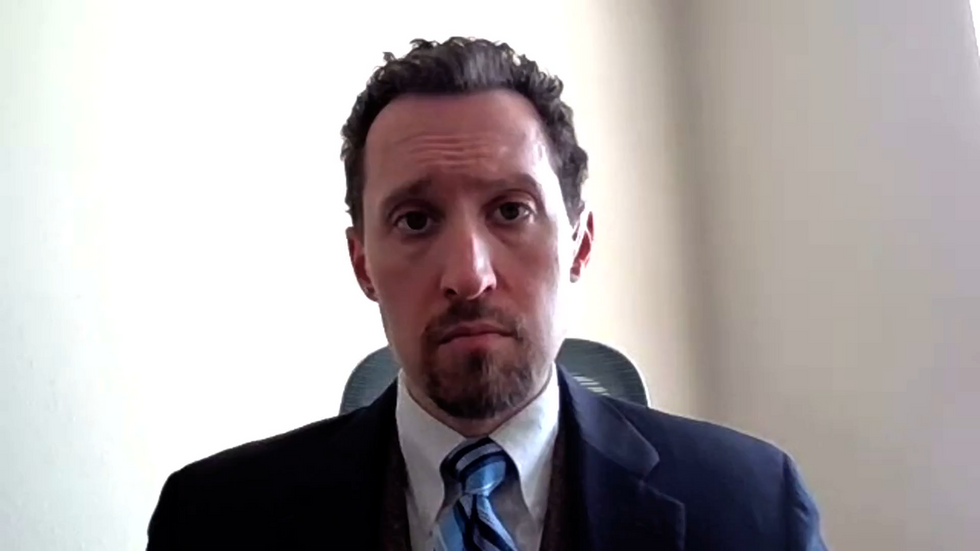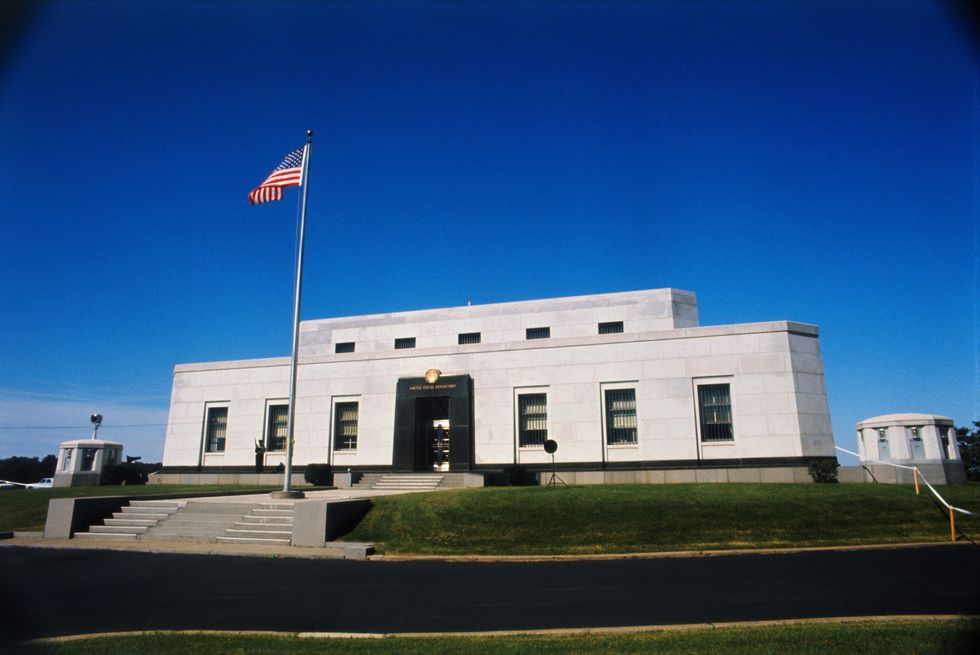EJ Antoni warns Bank of England 'should be worried' over exit of gold to US
GB News
Donald Trump and Elon Musk vowed to total up the amount stored at the US military base 'to make sure the gold is there'
ADDITIONAL REPORTING BY OLIVER TRAPNELL
Don't Miss
Most Read
Trending on GB News
A US economist has warned that the Bank of England and other central banks "should have started getting worried several years ago" after at least two banks withdrew gold bullion from the vaults and sent it to the US.
Anticipating fears of a trade war under President Donald Trump, JPMorgan and HSBC began withdrawing gold bullion from the Bank of England and shipping it across the Atlantic, according to the Wall Street Journal.
Roughly 8,000 bars of the precious metal have reportedly been removed.
The removal also comes amid concerns Donald Trump is preparing to count America's own stock of gold at Fort Knox, Kentucky.
Last week, Donald Trump vowed to count the amount at the US military base "to make sure the gold is there" - all 150 million ounces of it - which at the current exchange rate is valued around $435billion (£345billion).
Speaking to the People's Channel, Research Fellow in The Heritage Foundation, EJ Antoni, highlighted that the lack of concern demonstrated by top bankers shows "just how far behind the curve" they have fallen.

Speaking to the People's Channel, The Heritage Foundation's EJ Antoni has highlighted that the lack of concern demonstrated by top bankers shows 'just how far behind the curve' they have fallen
GB News
In a damning verdict, he argued that it demonstrates "how little grasp they have of the situation", adding: "They don't seem to understand what's going on right under their own noses."
Just last week, Bank of England chief Andrew Bailey assured Britons that the UK still had "plenty of gold".
"We have seen a movement in the relative price of gold in London and New York in recent times. And that is causing some gold to be moved to New York. Not vast: it's under two per cent of our stock," he told Sky News.
Although Bailey depicted two per cent of the gold as a "relatively small" portion, Antoni harked back to when gold trade was more commonly used "when those kinds of shifts in gold would cause massive changes in things like interest rates" which would cause a "very noticeable fluctuation within an economy".
LATEST DEVELOPMENTS:
Despite not having those systems today, the economist explained that the amount stored deep beneath the London underground "definitely speaks to investors' confidence" overall, but also confidence in general economic growth and inflation.
Although a more antiquated form of financial transaction, Antoni explained that there were two reasons gold has become a more important feature in the modern economic make-up.
"The reason that gold has absolutely exploded in price just over the last couple of years is because these different monetary scientists have so thoroughly devalued their own currencies," he explained.
"Additionally, people have lost confidence in more common fiat currencies."

Last week, Donald Trump vowed to total up the amount stored at the US military base "to make sure the gold is there"
GETTY
Last month, it was revealed that US traders were able to acquire a £66billion stockpile in New York ahead of concerns over Trump's tariffs, the FT reported.
When questioned on the prospect of future tariffs imposed by the President, Antoni told GB News that "nations around the world need to be very, very concerned about these tariffs" because, in the long term, "a lot of that cost is borne by the foreign producer".
As a result, this will force foreign companies to decide between swallowing the cost of imports - which will hurt its own profits - or decide to move the production to America, by Americans.
He further warned that foreign leaders who fail to negotiate a deal with the President "need to be very worried about their export industries".
The comments come after an analysis by GB News revealed Labour’s mass sale of gold at the turn of the millennium could have covered the entirety of the £22billion “black hole” in public finances had it been sold today instead.
From 1999 to 2002, the Labour Government, with Gordon Brown as Chancellor of the Exchequer, sold off just shy of 400 tonnes of Britain’s gold in a bid to diversify the UK’s assets.
Brown sold around half of Britain’s gold reserves for a total of $3.5billion (approx £2.14billion based on the exchange rate in 1999) but had it been sold today, it could have paid for the “black hole” in the UK’s public finances with around £5billion in headroom.







